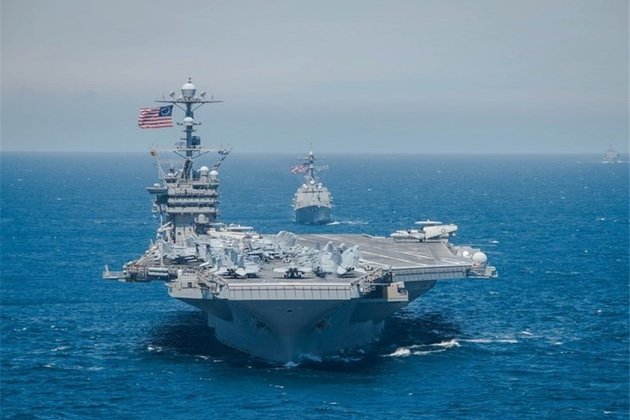Politics
Beating back India’s retail Luddites
Author: Rajiv Kumar, FICCI The Luddites have won for the moment, with their recent protests following the Indian government’s decision to allow FDI in the retail sector. A mere 10 million owners of traditional and self-organised retail and wholesale trade have held a country of 1.2 billion people to ransom and thwarted progress. Their pyrrhic victory was achieved by evoking the fear of 40 million people associated with the sector, suggesting they would be thrown out of jobs and lose their livelihoods. This is a gross misrepresentation of facts. It is yet another demonstration of how untruths can triumph when repeated often and loudly enough. India’s retail sector is destined to almost double in size in the next 10 years simply by keeping pace with growth — and with such high levels of growth , there is room enough for everyone. Those who oppose the entry of FDI in India’s retail trade, thereby preventing the sector’s modernisation, are yet to explain how an expansion in business from US$450 billion to an expected US$840 billion will result in the death, demise, destitution and deprivation of this most resilient and intrepid group of traders. A greater contradiction could not have been imagined, and can come about only in India where competitive populism seems to have trumped any rational discourse. The other fear being purposely promulgated is the idea that India will go back to being a colony of foreign powers. This is done by resurrecting the ghost of the East India Company, which entered India in 1612 by asking for a trading concession from Emperor Jahangir. Those evoking such fears cannot be serious in arguing that India in 2011 is as vulnerable, divided, weak and inept as it was four centuries ago. India today is becoming a global power. It is actively striving for a permanent seat on the UN Security Council, and others are supporting it in this endeavour. A large number of developing and emerging economies look toward India as a model for their own development. In complete contrast to this positive sentiment, there are those who would have us believe that foreign retail stores — selling food, toiletries and assorted merchandise — can outwit, outthink and outgun India’s leadership and elite. This reflects a very low opinion of Indian abilities. Can a country whose own people have such a poor opinion of themselves really rise to assume global responsibility? Can the BJP, avowedly a political party with strong nationalist sentiments, not see the stark contradiction in this fear of the foreigner and their exemplary nationalism? Indians have to show the world — and more importantly prove to themselves — that they can determine their own destiny. This will not be achieved by denying the progress that can come from working with foreign investors, but by acting with sagacity, foresight and resolve when and if foreign investors diverge from national priorities. Those who have opposed the entry of FDI in multi-brand retail have done so without recognising that it is a sector dominated by a cash economy, with non-accountability and poor-to-horrible working conditions. The same class of traders, which is being pampered with all the political attention, does not bat an eyelid while cutting regulatory corners and flouting all rules and regulations — of which there is a plethora. These measures are largely meant to be ignored, and are used predominantly to generate rent for an army of government inspectors. Perhaps these features of the unorganised retail trade make it attractive to those who would rather keep India’s cash economy and the country’s young people trapped in low-productivity and insecure jobs. It is a real pity that the otherwise active civil society and consumer welfare organisations choose to ignore the poor working conditions and anti-consumer welfare aspects of the unorganised retail sector. It is also a pity that farmers’ organisations have not come out more strongly in favour of large-scale organised retail trade which will give them higher returns, better terms of trade and greater access to better farming practices. The lesson from this unfortunate episode is that it is important for those who are advocating reforms for greater liberalisation and globalisation to also better organise themselves and take the trouble to present their case to the public. The setback to introducing FDI in retail trade strongly demonstrates that reforms can never be undertaken by stealth. A public case has to be built and propagated strongly to push back the Luddites. Dr Rajiv Kumar is Secretary-General of the Federation of Indian Chambers of Commerce and Industry . An earlier version of this article was originally published here in the Hindu Business Line. Is China or India ageing better? Can India and America up their investment game? India after the elections

Author: Rajiv Kumar, FICCI
The Luddites have won for the moment, with their recent protests following the Indian government’s decision to allow FDI in the retail sector.

A mere 10 million owners of traditional and self-organised retail and wholesale trade have held a country of 1.2 billion people to ransom and thwarted progress. Their pyrrhic victory was achieved by evoking the fear of 40 million people associated with the sector, suggesting they would be thrown out of jobs and lose their livelihoods. This is a gross misrepresentation of facts.
It is yet another demonstration of how untruths can triumph when repeated often and loudly enough. India’s retail sector is destined to almost double in size in the next 10 years simply by keeping pace with growth — and with such high levels of growth, there is room enough for everyone.
Those who oppose the entry of FDI in India’s retail trade, thereby preventing the sector’s modernisation, are yet to explain how an expansion in business from US$450 billion to an expected US$840 billion will result in the death, demise, destitution and deprivation of this most resilient and intrepid group of traders.
A greater contradiction could not have been imagined, and can come about only in India where competitive populism seems to have trumped any rational discourse.
The other fear being purposely promulgated is the idea that India will go back to being a colony of foreign powers. This is done by resurrecting the ghost of the East India Company, which entered India in 1612 by asking for a trading concession from Emperor Jahangir. Those evoking such fears cannot be serious in arguing that India in 2011 is as vulnerable, divided, weak and inept as it was four centuries ago. India today is becoming a global power. It is actively striving for a permanent seat on the UN Security Council, and others are supporting it in this endeavour. A large number of developing and emerging economies look toward India as a model for their own development.
In complete contrast to this positive sentiment, there are those who would have us believe that foreign retail stores — selling food, toiletries and assorted merchandise — can outwit, outthink and outgun India’s leadership and elite. This reflects a very low opinion of Indian abilities. Can a country whose own people have such a poor opinion of themselves really rise to assume global responsibility? Can the BJP, avowedly a political party with strong nationalist sentiments, not see the stark contradiction in this fear of the foreigner and their exemplary nationalism? Indians have to show the world — and more importantly prove to themselves — that they can determine their own destiny. This will not be achieved by denying the progress that can come from working with foreign investors, but by acting with sagacity, foresight and resolve when and if foreign investors diverge from national priorities.
Those who have opposed the entry of FDI in multi-brand retail have done so without recognising that it is a sector dominated by a cash economy, with non-accountability and poor-to-horrible working conditions. The same class of traders, which is being pampered with all the political attention, does not bat an eyelid while cutting regulatory corners and flouting all rules and regulations — of which there is a plethora. These measures are largely meant to be ignored, and are used predominantly to generate rent for an army of government inspectors.
Perhaps these features of the unorganised retail trade make it attractive to those who would rather keep India’s cash economy and the country’s young people trapped in low-productivity and insecure jobs. It is a real pity that the otherwise active civil society and consumer welfare organisations choose to ignore the poor working conditions and anti-consumer welfare aspects of the unorganised retail sector.
It is also a pity that farmers’ organisations have not come out more strongly in favour of large-scale organised retail trade which will give them higher returns, better terms of trade and greater access to better farming practices.
The lesson from this unfortunate episode is that it is important for those who are advocating reforms for greater liberalisation and globalisation to also better organise themselves and take the trouble to present their case to the public. The setback to introducing FDI in retail trade strongly demonstrates that reforms can never be undertaken by stealth. A public case has to be built and propagated strongly to push back the Luddites.
Dr Rajiv Kumar is Secretary-General of the Federation of Indian Chambers of Commerce and Industry. An earlier version of this article was originally published here in the Hindu Business Line.
- Is China or India ageing better?
- Can India and America up their investment game?
- India after the elections
Read the rest here:
Beating back India’s retail Luddites
Politics
US Navy Carrier Conducts Exercises in South China Sea

TEHRAN (Tasnim) – A US Navy aircraft carrier conducted exercises in the contested South China Sea on Friday, the US navy said in a statement. –
A strike group led by the USS Ronald Reagan conducted flight operations and high-end maritime stability operations and exercises, the statement said, Reuters reported.”Integration with our joint partners is essential to ensuring joint force responsiveness and lethality, and maintaining a free and open Indo-Pacific,” US Navy Commander Joshua Fagan, Task Force 70 air operations officer aboard USS Ronald Reagan, was quoted as saying.The drill comes amid heightened tensions between the United States and China.
Washington has criticized Beijing over its novel coronavirus response and accuses it of taking advantage of the pandemic to push territorial claims in the South China Sea and elsewhere.The United States has long opposed China’s expansive territorial claims in the South China Sea and has sent warships regularly through the strategic waterway.China has objected to such exercises and said the US rejection of its claims in the South China Sea has raised tension and undermined stability in the region.China claims nine tenths of the resource-rich South China Sea, through which some $3 trillion of trade passes a year. Brunei, Malaysia, the Philippines, Taiwan and Vietnam have competing claims.
Politics
How China is using tourism for geopolitical goals
The Chinese government has a degree of leverage over its tourists that other governments do not enjoy. Many Chinese tourists are new to international tourism and have limited international language abilities

Decades of astonishing economic growth have given China new tools for extending its influence abroad and achieving its political goals.
(more…)












